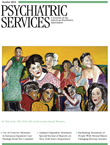Kaiser Foundation's annual survey on employer health benefits: Workers on average are paying nearly $4,000 this year toward the cost of family health coverage—an increase of 14%, or $482, above what they paid last year, according to the benchmark
2010 Employer Health Benefits Survey recently released by the Kaiser Family Foundation and the Health Research and Educational Trust (HRET). Covered workers on average contribute 19% of the total premium for single coverage (up from 17% in 2009) and 30% for family coverage (up from 27%). The average annual premiums for employer-sponsored health insurance are $5,049 for single coverage and $13,770 for family coverage. Since 2000 average family premiums have increased 114% and worker contributions to the total premium have increased 147%. The annual survey of employers continued to document the prevalence of high-deductible health plans associated with a savings option; in 2009 these plans accounted for 8% of covered workers, and in 2010 the proportion was 13%. In response to the 2008 Mental Health Parity and Addiction Equity Act, 31% of firms with more than 50 workers made changes to the mental health benefits they offer. Among those making changes, 66% eliminated limits on coverage, Most of this group eliminated limits on coverage to comply with the law, 16% increased utilization management of mental health benefits, and 5% dropped mental health coverage altogether. The survey, which was conducted from January 2010 through May 2010, included 3,143 randomly selected public and private firms with three or more employees, 2,046 of which responded to the full survey and 1,097 of which responded to an additional question about offering coverage. Researchers at the Kaiser Foundation, the National Opinion Research Center at the University of Chicago, and Health Research Educational Trust designed and analyzed the survey. The report is available on the Kaiser Web site at
ehbs.kff.org/pdf/2010/8086.pdf .
Mental health effects of the oil spill disaster: The full extent of the environmental, economic, and health impacts of the Deepwater Horizon oil spill disaster remains uncertain. How it may affect residents' mental health is a serious concern. In August BP announced that it will provide $52 million to fund mental health programs across the Gulf Coast for residents affected by the disaster. The Substance Abuse and Mental Health Services Administration (SAMHSA) will receive $10 million, and other funds will be divided among the four affected states—Louisiana, Mississippi, Alabama, and Florida. SAMHSA plans to launch an 800 number for residents of the affected states. In addition to the handouts already available on its Web site that provide tips for dealing with the oil spill disaster targeted to parents and teachers, emergency response workers, and the general public (
www.samhsa.gov/disaster ), SAMHSA is using the funds, in partnership with the Centers for Disease Control and Prevention, to develop behavioral health educational materials, especially for children and families, and to conduct surveillance of ongoing behavioral health needs of individuals affected by the oil spill. The National Institute of Mental Health (NIMH) has released a fact sheet to help individuals cope with uncertainty about the continued effects of the oil spill disaster. In a related video, Farris Tuma, Sc.D., chief of the NIMH Traumatic Stress Research Program, addresses mental health challenges facing residents and health care providers. (
www.nimh.nih.gov/media/video/tuma-oil-spill.shtml ).
AHRQ data on mental health visits to emergency departments: About one in eight emergency department visits in 2007 involved mental illness, substance abuse, or both, according to a new report from the Agency for Healthcare Research and Quality (AHRQ). Of some 95 million visits to emergency departments by adults that year, 12 million were by people with mental health problems with or without substance abuse. Of the 12 million visits, about two-thirds involved patients with a mental disorder other than substance abuse, one-quarter involved patients with a substance abuse problem only, and the rest involved patients with co-occurring disorders. Mood disorder was the most common reason for a visit (43%), followed by anxiety disorders (26%), and alcohol-related conditions (23%). The remaining reasons included drug-related conditions, schizophrenia and other psychoses, and intentional self-harm. Medicare was billed most frequently for visits related to mental health or substance use problems (30%), followed by private insurance (26%) and Medicaid (20%). One in five visits (21%) was uninsured. The report is based on data from the Nationwide Emergency Department Sample of the Healthcare Cost and Utilization Project (HCUP).
Mental Health and Substance Abuse-Related Emergency Department Visits Among Adults, 2007 is available on the HCUP site at
www.hcup-us.ahrq.gov/reports/statbriefs/sb92.pdf ).

